These Are the Worst Foods for Your Lungs
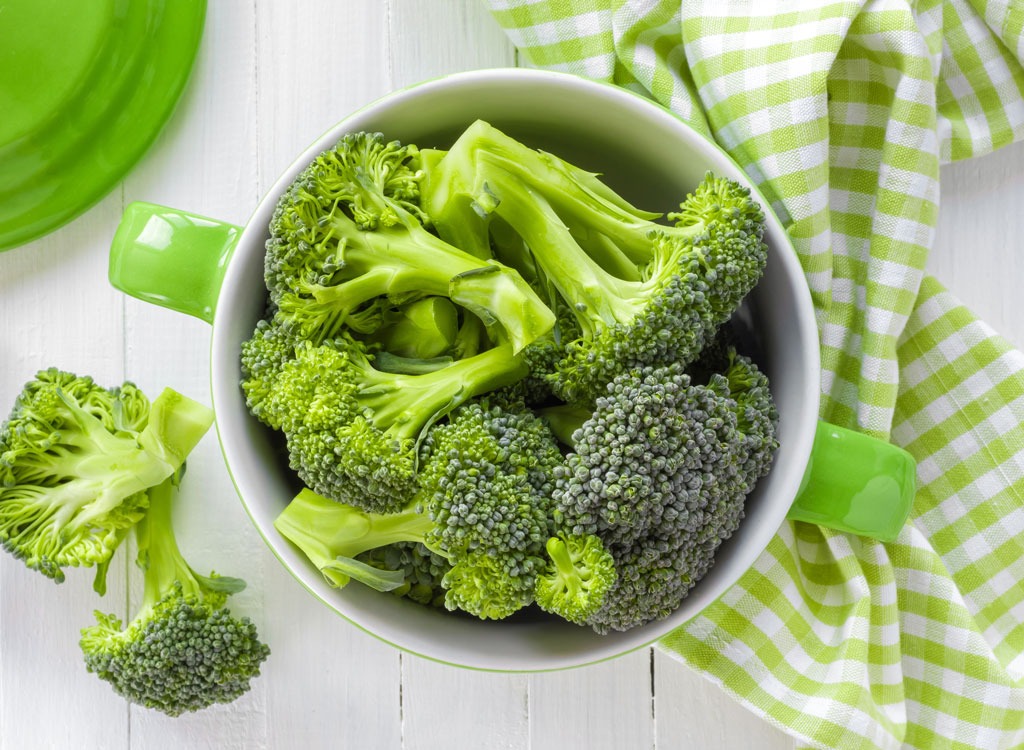
Whether you have troubles with your lungs or you’re just interested in making sure you’re doing all you can to keep them strong—especially during a time like right now when the world is dealing with a pandemic that is resulting in breathing issues—keeping your lungs as healthy as you can is always a good idea. Along with adopting the obvious habits such as not smoking, exercising, and minimizing your exposure to air pollution, your diet can also play a role. There are some foods that aren’t really helping your lungs out.
Here’s a breakdown of the worst foods for your lungs that should be limited if you’re prioritizing your lung health.
Bread
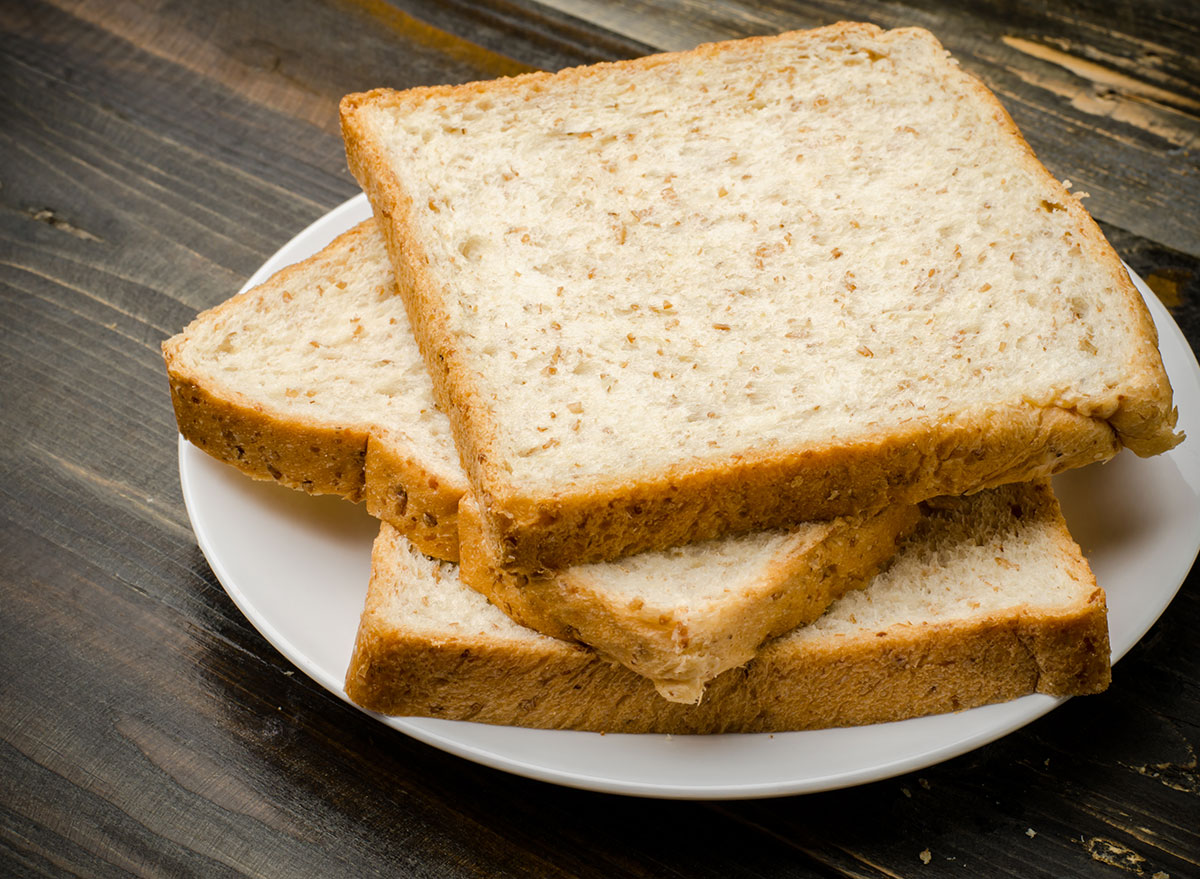
Simple carbohydrates like refined flours and sugars can contribute to poor lung health. Not only are these foods inflammatory, but they require a lot more work on the part of the lungs to metabolize.
“A low-carb diet will allow the body to produce less carbon dioxide, which is good news for anyone with existing lung conditions,” says Lisa Richards, nutritionist and author of The Candida Diet.
Colleen Wysocki-Woods, MS, RDN, Owner, ZEST Nutrition agrees, noting that while “carbohydrates are important for normal function and energy,” it’s essential to choose complex carbohydrates like whole grains, fruits, and vegetables.
“These provide nutritional benefit despite the cost of producing carbon dioxide,” she says. “Refined white pastas, breads, rice, and sweets won’t provide much nutritional benefit and aren’t worth the cost of more difficult breathing.”
Tsao-Lin Moy, acupuncturist and alternative medicine specialist, also notes the added inflammation of these foods can “cause the airways to tighten up and produce phlegm.”
“Research shows there is a relationship with celiac disease and lung disease,” she says. “Gluten intolerance can present as lung problems with [a] cough.”
Broccoli
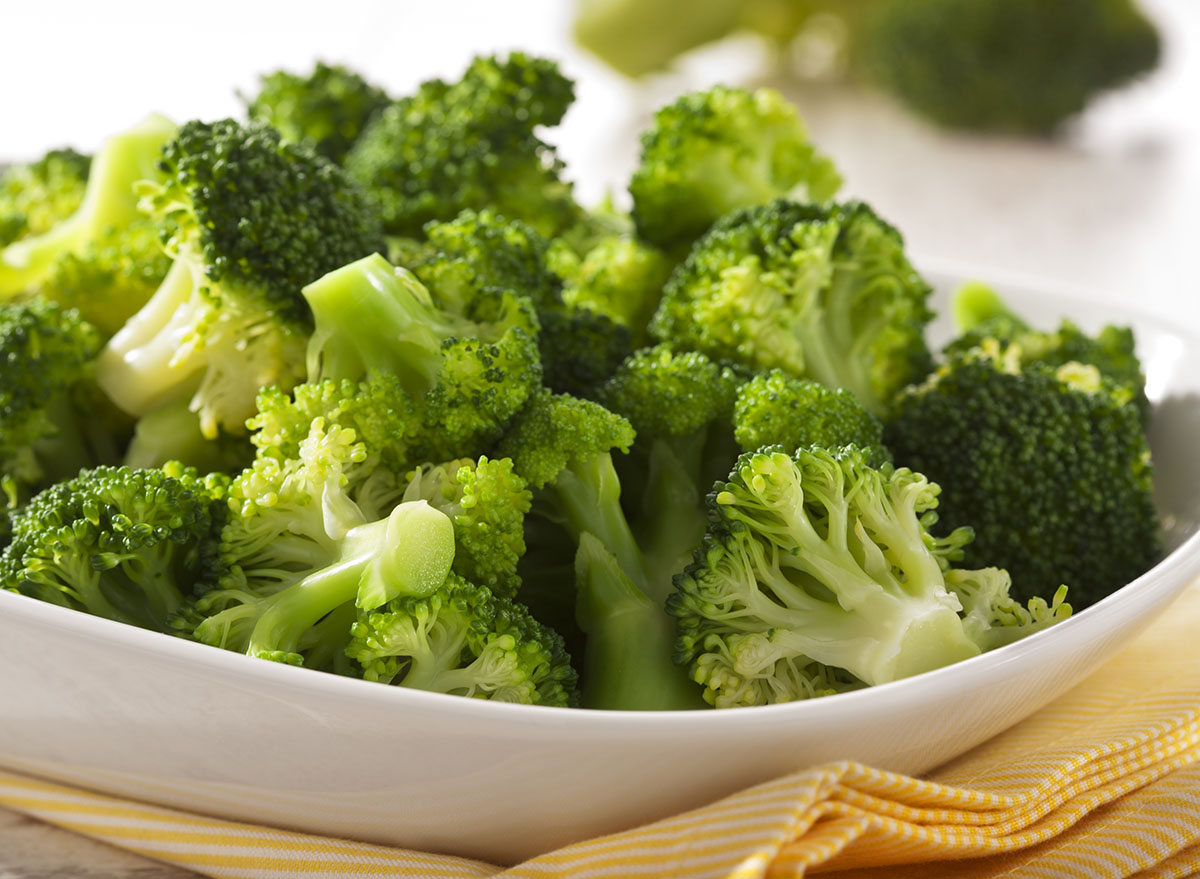
You may be surprised to find healthy broccoli on this list! While in some cases, broccoli can be good for your lungs thanks to its richness in antioxidants and anticarcinogenic potential, Amanda Webster, certified mind-body coach, notes that it can actually contribute to poor lung health due to its propensity for bloating.
“Because we automatically think ‘healthy’ when we think veggies, it is easy to forget that there are special cases in which certain otherwise healthy foods should be restricted,” she says. “If you get gas after eating foods such as broccoli, cauliflower, or cabbage, try limiting them or switching them for other-nutrient dense food.”
Ice Cream
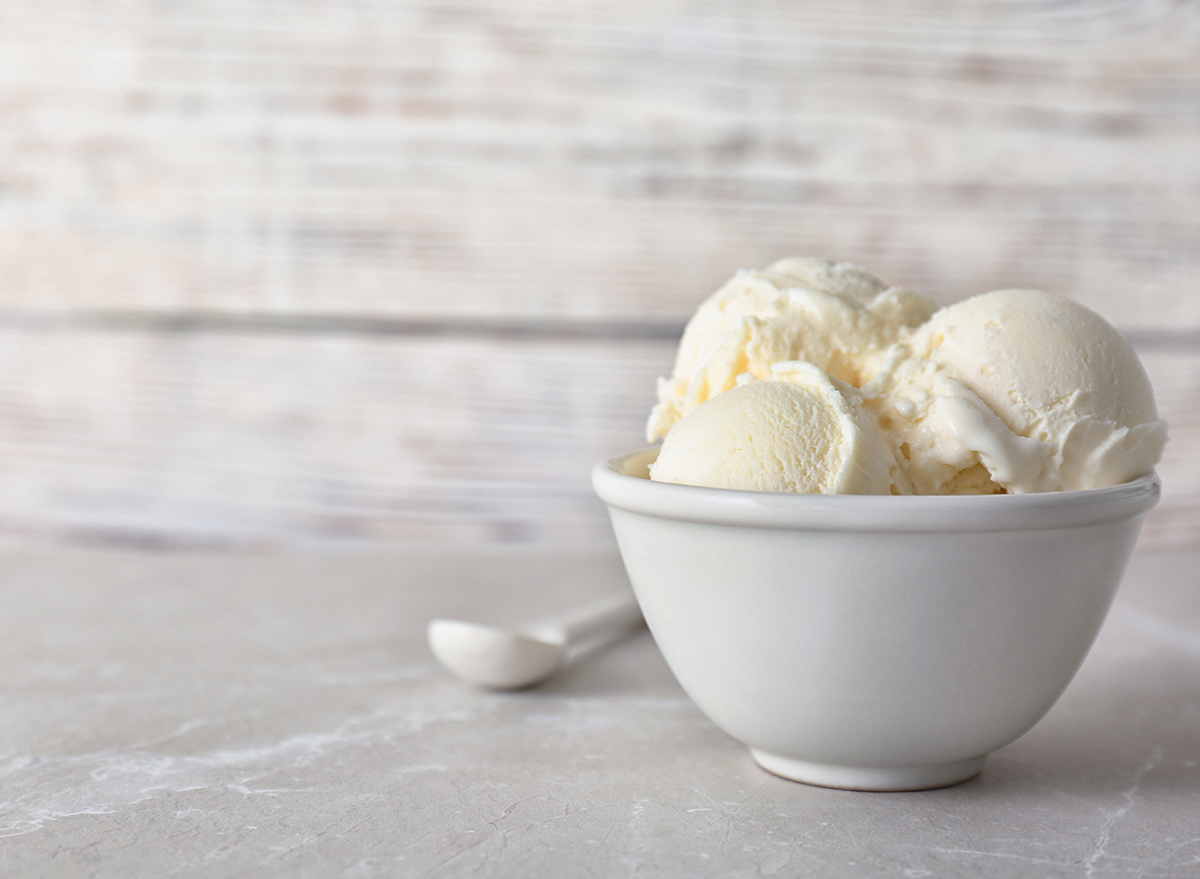
We know, this is a tough one to swallow. But dairy is known to increase mucus production, explains naturopathic doctor Anna Johnson, owner of Anna’s Organics, “especially in the respiratory tract,” making it “one food we should be consuming less of during cold and flu season, or right now with COVID-19.”
“Milk and dairy products can produce a lot of mucous and inflame tissues of the respiratory tract,” says Dr. NavNirat Nibber, ND and medical advisor at Advanced Orthomolecular Research. “If you are noticing a consistent productive cough that gets worse with dairy, excessive phlegm, sinus irritation, or stuffy nose, try cutting out dairy and see how symptoms change.”
This goes double for ice cream, which also contains inflammatory refined sugar.
Chips
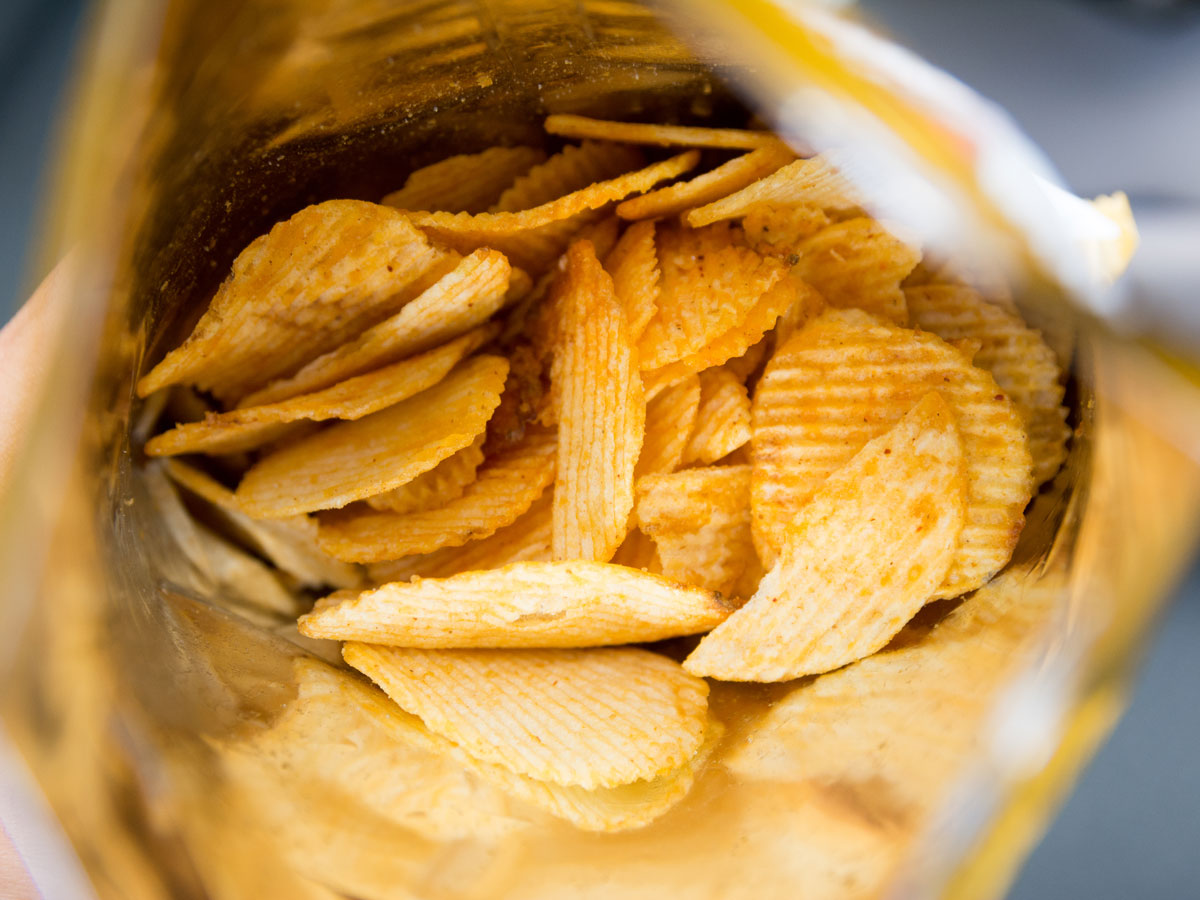
It’s no surprise that processed food is no good for your lungs. Processed foods like potato chips are packed with saturated fat and salt, neither of which is great for general health—or lung health, specifically.
“Trans and saturated fats contribute to your cardiovascular health,” says Dr. Lina Velikova, MD, Ph.D., a medical advisor at Supplements101.net, “which is immediately related to your lung health.”
Salt, she continues, increases blood pressure, and “continuous consumption of higher dosages may deteriorate your heart health.”
Dr. William Li, physician-scientist and author of Eat To Beat Disease, echoes this warning.
“Salt can be bad for the lungs, especially if you have an underlying lung condition like chronic obstructive pulmonary disease (COPD), and heart disease,” he says, noting that salt also causes water retention, which can leak fluid into the lungs and make it more difficult to breathe.
Beer
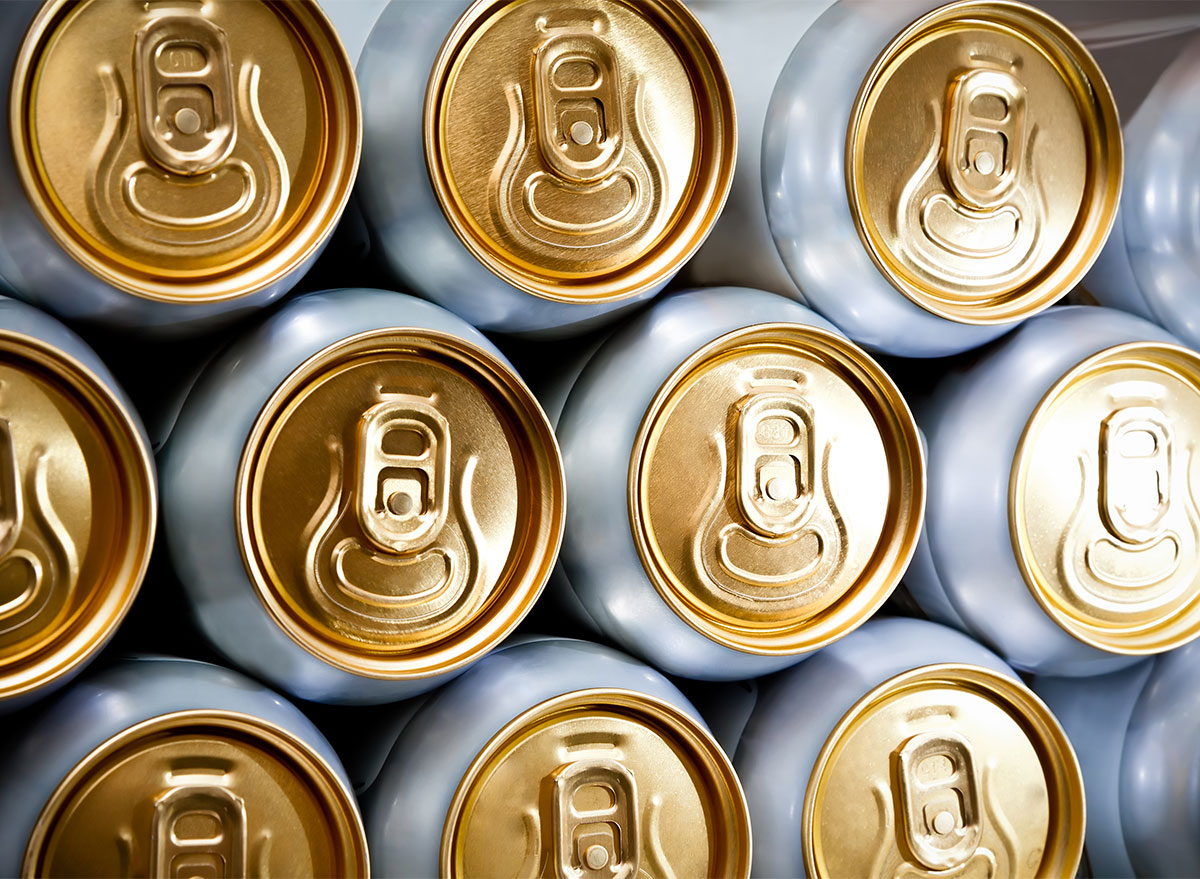
Alcohol isn’t great for the lungs in any form, particularly sulfited red wine or sugar-loaded cocktails, both of which can contribute to inflammation. But beer may be the worst choice of all.
“Gassy and carbonated foods can cause bloating, tightening of the chest, and even asthma attacks,” says Wysocki-Woods. Because alcohol also contributes to dehydration, best give it a pass if you’re looking to improve your lung health.